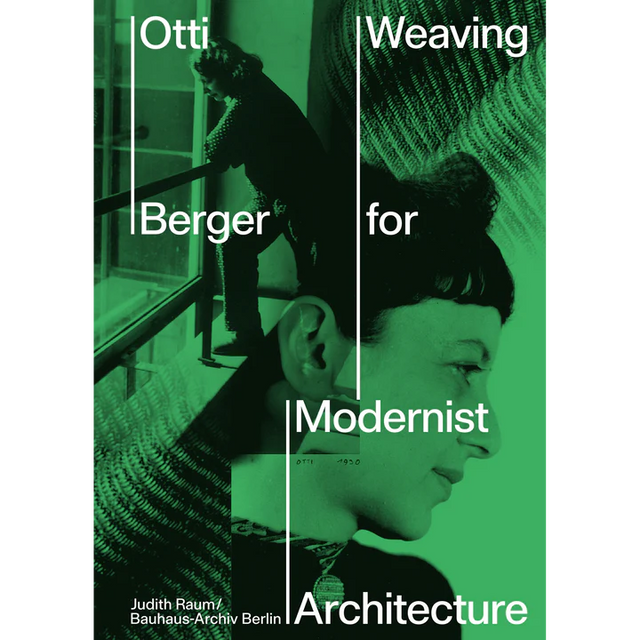
Otti Berger weaving for modernist
- Delivery time within the country 2-5 working days
- 30-day return policy
- With every purchase, you support the Bauhaus Archive Museum of Design
Textiles for the spaces of modernity
In early 1930s Berlin, Otti Berger, as a female sole entrepreneur, created fabrics that fundamentally changed the understanding of what textiles can be and do. For her upholstery fabric designs, curtains, wall fabrics, and floor coverings, she worked closely with architects of the New Building movement such as Lilly Reich, Ludwig Hilberseimer, and Hans Scharoun. She designed for novel functional demands and thereby redefined the interplay of aesthetics and function – with fascinating results that still convince aesthetically and functionally today. Berger's textile work has so far been little researched; the artist Judith Raum succeeds here for the first time in comprehensively presenting the complexity and beauty of her fabrics and bringing them to new life.
OTTI BERGER (1898 – 1944) was one of the most important textile designers of the 20th century. Born in Zmajevac, in what was then the Hungarian Kingdom of Croatia, she studied from 1921 to 1926 in Zagreb, and from 1927 at the Bauhaus in Dessau. After teaching at the Bauhaus, she became self-employed in Berlin in 1932 and designed fabric collections for modern interiors across Europe. In 1936, as a Jew, she was banned from working; attempts to flee to England and the USA failed. She was deported from Croatia to Auschwitz in 1944 and murdered there.
The visual artist and art historian JUDITH RAUM (*1977) is a specialist in Otti Berger's work as a result of several research projects on the textile workshop at the Bauhaus. This book concludes her multi-year cooperation project with the Bauhaus Archive Berlin, for which she has comprehensively researched Berger's estate, scattered across archives worldwide, for the first time.
Delivery time
Inland 2-5 working days
Return
30 days return policy

Original Bauhaus
With every purchase, you support the Bauhaus Archive Museum of Design
